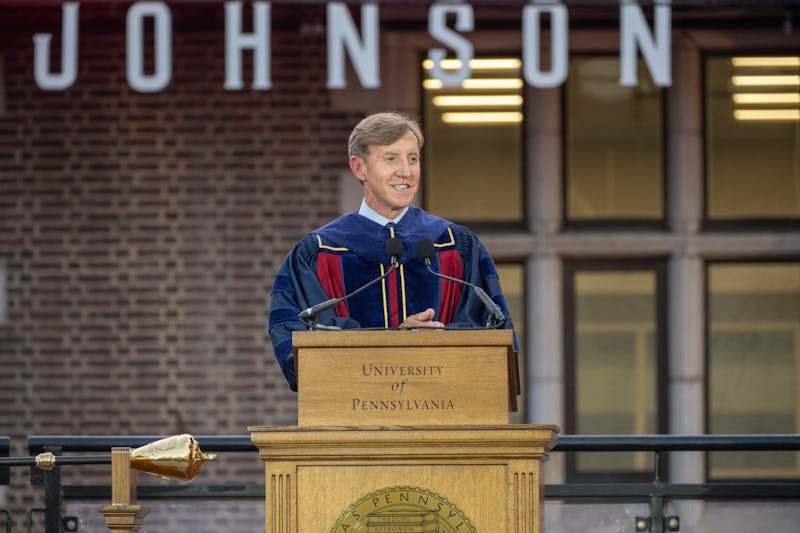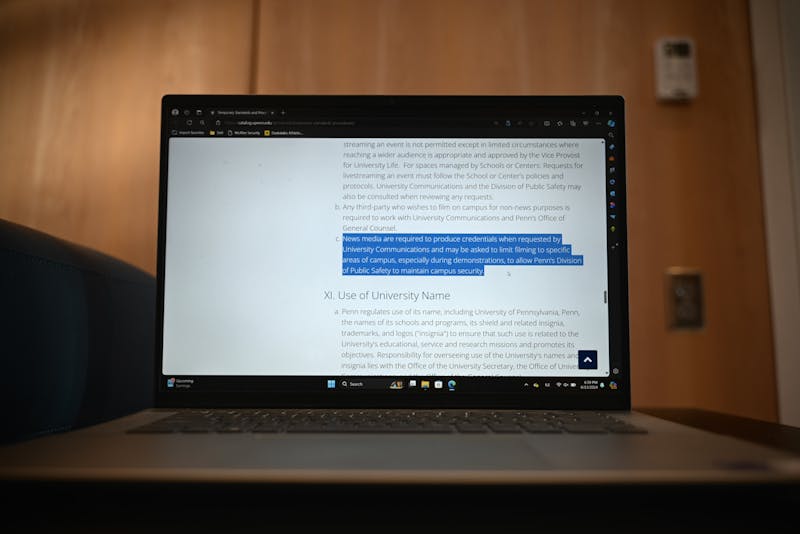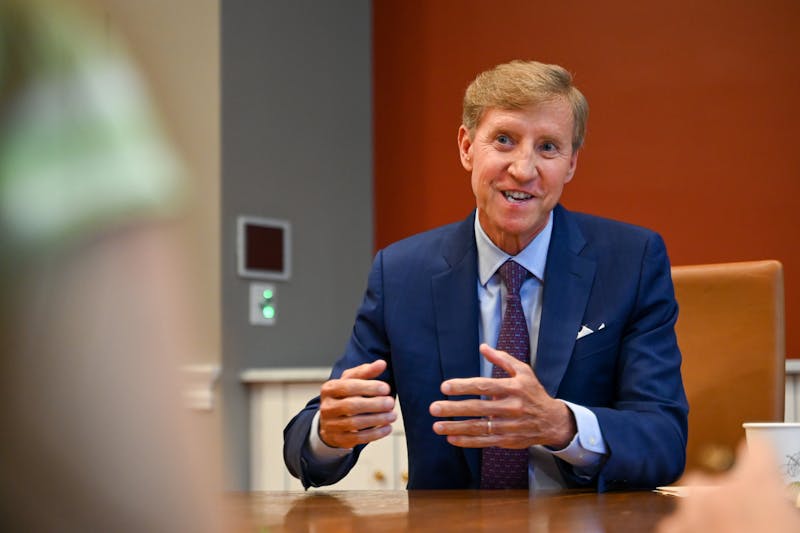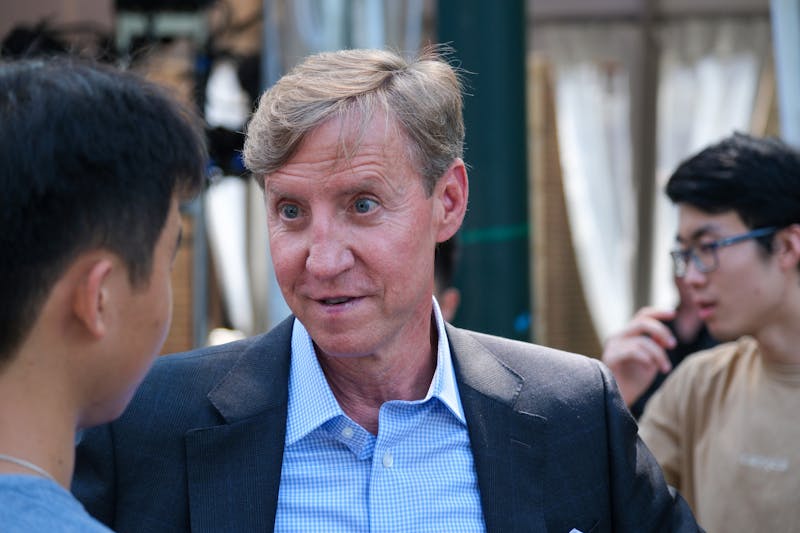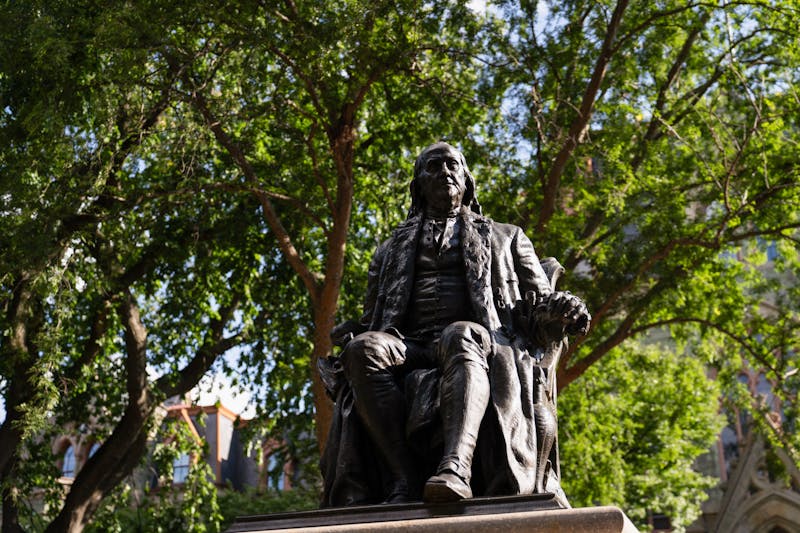
Locust Walk on March 29, 2023.
Penn community members expressed support for Interim Penn President Larry Jameson's new policy on institutional neutrality, but some shared concerns about Penn’s ability to commit to the new policy.
Jameson announced last week that University leaders will no longer issue public statements on local or global events that do not have a direct impact on Penn, claiming that the new policies aim to protect the “diversity of thought” central to Penn’s mission. The shift to the new policy will limit the University’s role in commenting on controversial issues which do not directly relate to it.
A request for comment was left with a University spokesperson.
“It is not the role of the institution to render opinions — doing so risks suppressing the creativity and academic freedom of our faculty and students,” Jameson wrote in the announcement.
Several Penn community members expressed approval toward Penn's new commitment to neutrality.
Former University Board of Trustees Chair Scott Bok also expressed approval of the policy in a statement to The Daily Pennsylvanian.
"I am supportive of the new policy given how difficult it is to craft a statement that satisfies all constituencies on whatever event is being addressed," Bok wrote. "At the same time, I suspect it will sometimes prove challenging to remain silent on a national or international event that impacts members of Penn’s large community."
Penn Hillel leadership declined to comment.
Faculty Senate Chair and University of Pennsylvania Carey Law School professor Eric Feldman, while clarifying that he speaks only for himself and no other Faculty Senate members, told the DP that he agreed with Penn’s decision to not issue statements on external events.
“It has been clear for many years that such statements are often more polarizing than healing,” Feldman wrote in a statement to the DP. “That is not their intent but that’s what happens, so a no statements policy is the best remedy," he continued.
Feldman acknowledged that this policy would be difficult to maintain given that many Penn leaders have become accustomed to making public statements.
“My hope is that the silence of our leaders will amplify the voices in our community,” he added.
Judy and Howard Berkowitz Professor in Education at Penn's Graduate School of Education Jonathan Zimmerman said he thought the new policies were the "right call."
He referenced a statement of institutional neutrality known as the Kalven Report, which the University of Chicago issued in 1967 in response to tensions related to the Civil Rights Movement and the Vietnam War. The statement, which argued that a university must “encourage the widest diversity of views within its own community,” has since served as a model for several other institutions' adoption of neutrality policies.
"I think that the past year has borne out Kalven's argument," Zimmerman said. "Kalven said that everyone at the university should be free to take whatever positions they want personally, but the institution shouldn't take a position because that would inhibit the fundamental function of the university, which is actually to debate contested public questions."
Alumni and student groups expressed support for the policy but emphasized that more steps needed to be taken to protect academic freedom and free speech on campus.
Penn Alumni Free Speech Alliance — which was founded last spring — called Penn's commitment “an important first step."
“We hope Penn will strive to build an intellectually diverse community of students and faculty through admissions and hiring practices that reflect the same commitment,” a PAFSA spokesperson wrote in a statement to the DP.
Penn College Republicans also expressed hope that this policy would represent a “new chapter” of intellectual diversity at Penn.
“In the past, community members who have disagreed with Penn’s stances have felt isolated and hesitant to share their ideas openly,” a spokesperson for the club wrote in a statement to the DP. “We sincerely hope that he will keep his pledge to remain impartial on controversial issues which spark disagreement among students, faculty, and staff."
A Penn for Liberty spokesperson wrote in a statement to the DP that libertarians "oppose the hyper-politicization of society."
"We therefore welcome this change in policy as a step toward a saner world — one in which it is unnecessary for the leaders of every societal institution, from big banks, to sports leagues, to universities, to offer their opinions on every issue under the sun."
Penn Democrats did not respond to the DP's request for comment.
The push for institutional neutrality has increased over the past year due to controversy surrounding school administrators' varying responses to the Oct. 7, 2023 Hamas attack on Israel.
Jameson told the DP in a recent interview that the process of formally reviewing Penn’s policies for institutional statements was initiated by Interim Vice President for University Communications Stephen MacCarthy several years ago.
“The frequency of institutional statements has been increasing over several years; the request for institutional statements has been escalating, particularly during the [COVID-19] pandemic,” Jameson told the DP. “I think that was the time that we realized that we needed some guidance about how often we make comments and what the scope should be and who should be making them.”
The Daily Pennsylvanian is an independent, student-run newspaper. Please consider making a donation to support the coverage that shapes the University. Your generosity ensures a future of strong journalism at Penn.
Donate




